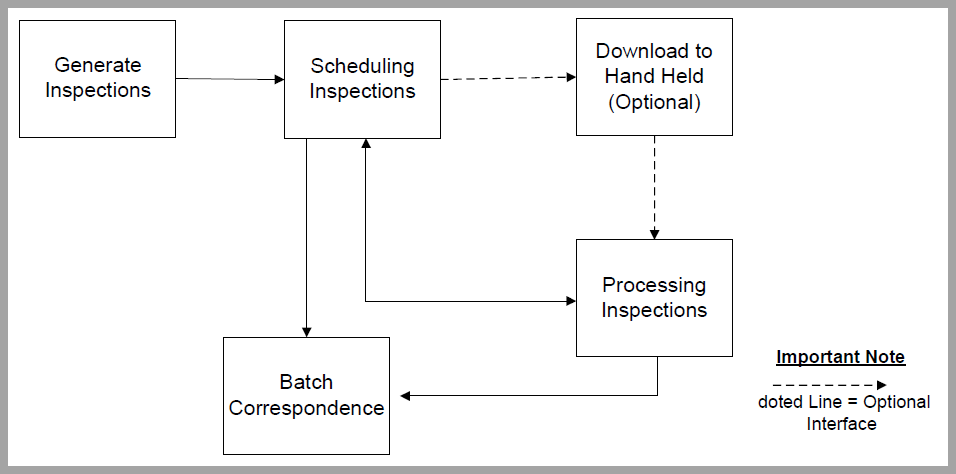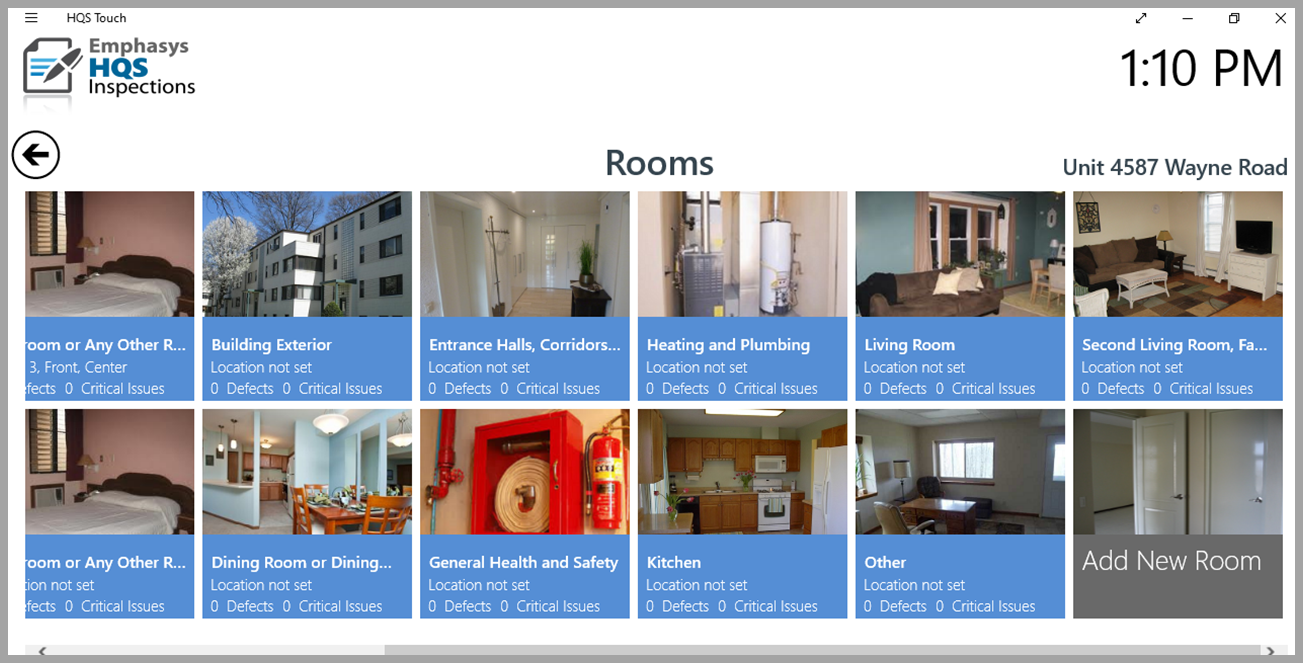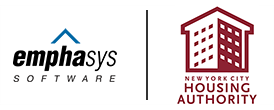 Isaac is a NYCHA inspector who is working with the system to get his schedule which contains both annual and special inspections. He conducts inspections in the field using a NYCHA tablet.
Isaac is a NYCHA inspector who is working with the system to get his schedule which contains both annual and special inspections. He conducts inspections in the field using a NYCHA tablet.

Use case: The system should have a process for advance scheduling of biennial/annual inspections
- All units that pass their initial rental inspection qualify for a biennial inspection schedule unless there is a child under 6 in the household
- If there is a child under 6 in the household the unit must be inspected annually regardless of inspection result
- If they failed their inspection, the unit must be inspected the following year
- If they pass a subsequent annual inspection (at initial review) they move back to a biennial schedule
How it works: The inspections module has processes for scheduling inspections and ensures that PIC submissions are submitted at least once every 24 months. Elite allows NYCHA to assign inspectors in several ways, including by census tract, caseworker, address and ZIP code. When Isaac has the day off, Elite will accommodate by allowing a mass update of inspections to someone else. An address validation tool ensures that addresses are valid and includes census tract.
In addition, Elite looks at PBV units and pulls 20% automatically. Hard-to-house waivers are easily granted and extended.
Use case: The system should allow for inspections to be rescheduled based on business needs or at the request of the owner or tenant.
How it works: Elite reinspections allows for a variety of situations. Reinspections are triggered automatically when Isaac identifies failed items. The checklist allows NYCHA to set the number of days until next reinspection.
Use case: The system should allow for separate notifications to tenant and owner (e.g., for pre-inspection, inspection unable to be completed/cancelled, inspection results, repair certification forms)
How it works: The Elite notification engine will notify the landlord/owner and tenant, as desired, in a number of scenarios, such as inspection dates, appeals hearing, voucher offers, etc.
Use case: The system must allow inspectors to conduct inspections in the field through a mobile interface/application on NYCHA issued tablets as well as remote video inspections (RVI) in the office.
How it works: Elite allows Isaac to complete mobile inspections on a NYCHA-issued tablet, and he can complete RVIs via desktop computer or tablet as well. When the inspection is complete, the tenant and inspector both sign off.
Use case: The system should allow for HUD requirements and process crossovers to be incorporated in the inspection during the annual/biennial inspections.
How it works: Elite Inspections allows Isaac to incorporate HUD requirements and process crossovers during annual/biennial inspections. This includes, but is not limited to, unit size upgrade review for medical equipment, unit size discrepancy review, building age and children under 6 displayed. If there are lead paint violations, the Lead Paint Certification is generated and sent to the owner along with other inspection failure notifications.
Use case: The system must have a workflow to process and resolve failed inspections.
How it works: The Elite system provides user-defined Level violations so that they can be tracked in detail by each checklist item. If Isaac encounters an inspection with the incorrect number of rooms, he can add them on the fly.

Use case: The system should have a notification system in place if a child with elevated blood lead levels (EBLL) is in a subsidized unit. NYCHA is notified of the condition, and then the EBLL work flow process must be started.
How it works: Elite provides notifications and KPIs to track if a child with EBLL is in the unit, including dates when elevated levels are confirmed and last tested.
